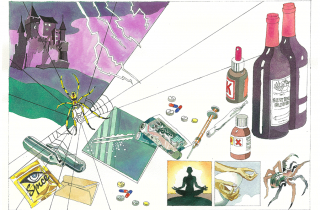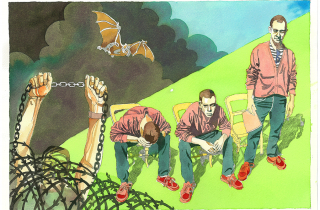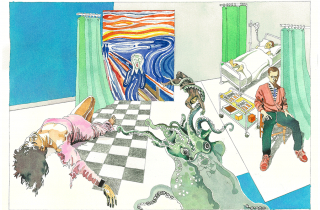Q&A Session with Sarah Graham (Addictions Expert)
Q: People who come to this site worried about their teenager’s drug use are looking for solutions. Is there a ‘quick fix’ for this problem?
A: There’s one action that parents can take very quickly if they are worried about their teenager’s drug use. This is to educate themselves about drugs in terms of what’s out there and the effects the drugs have. Teens know a lot more about drugs than their parents. You can read up on the subject by going to these websites:
And if you’re concerned about your teen’s cannabis use, read the following article:
A: Aside from educating yourself, there is no quick fix to the problem of what to do about your teenager’s drug use. But be reassured that there are things you can start doing right away to help your teenager get back on track.
- You can start challenging their behaviour. If you have allowed them to smoke cannabis at home, or have funded it, act immediately and put a stop to that. This is particularly important if there’s been a war of attrition going on and the teenager currently has the upper hand. It may require you admitting that your knowledge of cannabis or legal highs wasn’t very good – but you can say that now you are armed with new information, you are instigating new house rules.
- If there’s low level use of cannabis (or anything else) then it’s vital that you start a conversation very quickly with your teenager.
- If drug use has come to your notice because it has been detected by your child’s school, be open to the idea of working with the school. Some schools have a no-tolerance drug policy and expel pupils immediately when there has been drug use. This can be very traumatic for a child and make things much worse – so implore the school to work with you to deal with this in the best interests of everyone.
- There may be an underlying trauma issue with your child that will take some counselling to unearth and work with. See if you can start a collaboration with the teacher responsible for pastoral care or the school counsellor if there is one.
- If the school realises you’re serious about working with them, they can help to keep your child on track, without the need for drastic action such as expulsion.
- Schools need to be aware that there can be a vicious circle due to pressure on teens to achieve good grades, consequent stress, and therefore pupils self-medicating with cannabis or other drugs.
Q: Parents need a plan for dealing with a teenager’s drug use. Where is the best place to start?
A: The best place to start is to ask ourselves: “What do we know about what’s going on?”. Here are some ways you can help find the answers:
Establish the facts about your teenager’s drug use
Sometimes we react because our teenager’s friend or another parent has said something about our son or daughter. We need to establish what the facts are.
So first, try and get your teenager to be honest with you. Try to find out what’s going on, and why. Is their drug use in the early stages – still experimental? Or has it been going on for a while?
Unfortunately, if the young person is developing a dependency on the substance, they may well lie to you. Trust your instincts about whether your teenager is telling you getting the truth; and if your gut tells you that all is not as it seems, you may have to go into detective mode to uncover the facts. Working with your child’s friends’ parents can be very helpful for this.
Deal with any mixed messages from the past
As parents, we may have turned a blind eye to what our teenager has been getting up to both at home and outside (at parties for instance).
So we need to look at what has been OUR part in all of this. What messages have we been sending around drugs, including alcohol? Do we smoke cannabis – or have we done so in the past and talked to our children as though this was a normal part of life? Some parents have told their teenagers they would prefer them to smoke cannabis at home rather than to be out drinking in the park (feeling that this would keep them safer). Then after a while, those parents may begin to see signs that are really worrying.
So the strategy here is to get humble. You can say something like: “We may have sent mixed messages in the past. We didn’t realise that the stuff we smoked in college has changed out of all recognition and is now a very powerful and addictive drug.”
Parents (or Carers) and Family need to work as a team to deal with a teenager’s drug use.
This is absolutely vital. Manipulative teenagers and addicts cause a lot of division within a family. So if this has happened to you, re-group and take steps to start working as a team. Enlist the help of grandparents if this works for you – especially if you are a single parent.
Reduce stress.
If we are worried about our teenager’s drug use – then it’s time to take a long, hard look at ourselves. We need to do whatever we can to reduce stress in ourselves and within the family.
An excellent tool to use when you are starting to draw up your plan of action is the Serenity prayer:
God, grant me the Serenity to accept the things I cannot change
Courage to change the things I can
And the wisdom to know the difference.
If you are not comfortable with the word God, change it to something that works for you – Universe, Great Spirit, Higher Self, or even to a relative who has died and who was wise and would have given you support and whose counsel you really trusted.
Get some Family Time
Look at what you can do to help de-stress yourselves as a family unit. Maybe you could take a break for some family time – a few days at Centre Parcs or some time by the sea.
- But be reassured that it’s not necessary to spend a lot of money to create family time together. You can go for bike rides or a picnic, go to the park, or take a walk in the woods.
- Reinstate family mealtimes if this is something that has slipped. Talk to each other and try to improve the communication between you all.
- One interesting development is the idea of the digital detox. (There are now companies that offer digital-free holidays)
Digital breaks
Establish times of the day when technology is put away. It’s a good idea to ban phones at mealtimes.
Teenagers are very susceptible to peer pressure and have all sorts of stresses and pressures to be a certain way- that parents and grandparents didn’t have when they were younger. Technology can be a place we hide from each other and intimacy with loved ones and avoid our true feelings; and facing up to the problems we need to tackle.
For the next step – goals and a checklist – see Teenagers and Drugs – A Plan of Action for Parents






 photo by Jacqui Morley
photo by Jacqui Morley
